#Richardson Farm
Explore tagged Tumblr posts
Text


Richardson Farm, Spring Grove IL
#spring grove#richardson farm#tulips#pink tulips#tulip festival#naturecore#cottagecore#spring flowers#cozy cottage#gardencore#flowers
13 notes
·
View notes
Text

#my photo#nature#scenery#landscapes#wanderlust#aesthetic#adventures#vibes#seasons#pumpkins#pumpkin#spooky season#Halloween#fall#autumn#harvest#pumpkin farm#Richardson Farm#photography#s20#photographers on tumblr#Illinois
49 notes
·
View notes
Text
The Gentlemen - season 1 (2024) review
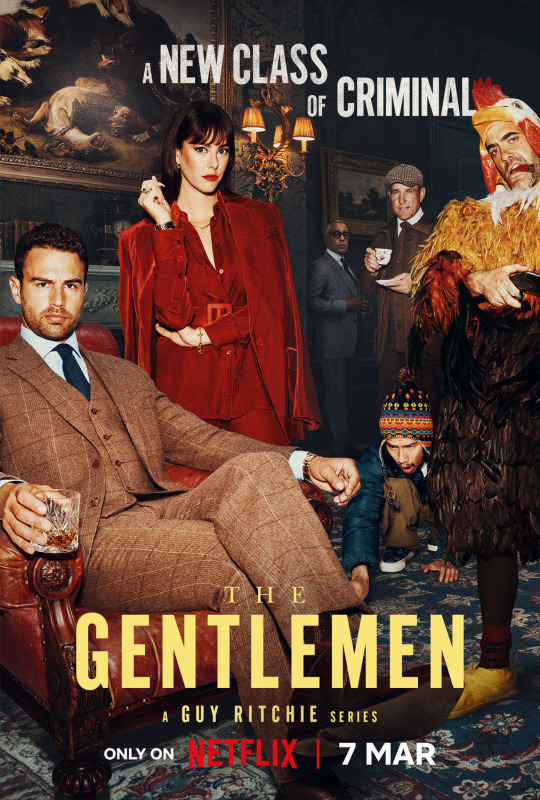
Alright, alright, alright….. wait, McConaughey is not in this one? Oh, well that’s not alright, alright, alright…
Plot: When aristocratic Eddie inherits the family estate, he discovers that it's home to an enormous weed empire, and its proprietors aren't going anywhere.
Guy Ritchie is honestly great. Since way back when he made Lock, Stock and Snatch, he’s consistently churned out top quality entertainment, except maybe the Aladdin remake. I mean I totally get he probably got a superb pay check out of it, but honestly what in the heavens did Guy Ritchie have to do with blue genies I will never know. Regardless, where the man really excels at is when it comes to the British gangster genre. The guy can make swearing sound so poetic and melodic - it’s honestly mad how something so otherwise rude can come off utterly beautiful and delightful like a song. Especially in his 2019 film The Gentlemen, the writing in that movie was so good!! Naturally Netflix caught onto this too as we now how a spin-off series.
Going into the show I was looking forward to it but also cautious, as I was aware this new show was missing the star power of the original film. I mean can you blame me? The movie had the likes of Matthew McConaughey, Charlie Hunnam, Colin Farrell and Hugh Grant to name a few. That’s a solid load of A-listers huddled together. As for the show, the names like Theo James or Kaya Scodelario didn’t instil heavy excitement, especially with James as honestly, I always thought he was a bit of a prick. Granted this may be due to when he played the dickhead in The Inbetweeners movie, and gosh do I feel old with that reference, but he just has that face of a guy that’s so full up his own arse. Again, I’ve never met the chap, he’s probably a lovely human being, but I’ve made this prejudgment in my head and as such when I found out he was the lead of this series I naturally rolled my eyes. That being said I give Netflix props as they hired the original film director Guy Ritchie to create this spin-off and even direct some of the episodes and do a lot of the writing, so of course I was going to check this show out.
Never doubt the Guy should be a new cinematic rule. I’m proud to report that the new The Gentlemen series is a fantastic watch. It’s not the most original show, yet it plays out more-so like a Guy Ritchie’s greatest hits, as it’s got his visual flare and style, with the super cool and smooth fashion choices - honestly Scodelario has a wardrobe change every other scene and each time it felt like she was walking out of a Tom Ford fashion exhibit, and then also all the men wearing their gentlemanly suits dripping with swagger and smoking their cigars and drinking their whiskeys - the whole thing is simply infused with that signature upper-class British gangster feel. Ritchie’s signature syllable-heavy dialogue that just rolls of the tongue is also more than ever present here, and whoever decided to cast Giancarlo Esposito in this show deserves a pay rise, as Esposito’s soft-spoken melodic tone proclaiming the colourful lines of Ritchie’s rich exposition was music to the ears.
The cast here too are super game. Theo James was actually solid as the lead young duke, as he had that manly prowess and was very believable as someone who gets shit done. Kaya Scodelario I thought at first was trying too hard to mimic Michelle Dockery from the original movie, but eventually she made the role her own, and she gave enough mystery to her performance to make us feel uncertain of her true motivations. Daniel Ings as the duke loser-cocaine-addicted-brother Freddy was a lot of fun, however I would say his character became a bit overbearing and annoying in the end, as he constantly made so many mistakes throughout that I honestly kind of wanted him to get killed. It’s as if whenever the show needed an excuse for something bad to happen, they’d just get Freddy to fuck up again. Apologies for my language, I don’t usually swear in my reviews, but also this is a Guy Ritchie project we’re talking about, and he uses the F word every other sentence. So fuck it. In regards to other notable cast members, Pearce Quigley as Gospel John, a leader of a religious gang was oddly creepy yet entertaining, especially when he’d randomly scream certain lines for absolutely no reason. Pure psycho. Peter Serafinowicz and Guz Khan have amusing turns. Lastly we have two British gangster alumni Vinnie Jones and Ray Winstone. These two of course were on a different level to everyone else. Of course Vinnie Jones can be quite cheesy when it comes to acting. One can fondly remember his delivery of the line “I’m the Juggernaut, bitch!”. But when it comes to Guy Ritchie, Jones and him have always been a great pairing. Here as the duke estates’ caretaker, Vinnie is super reserved yet again super cool. I think cool is a word that can be used and abused when it comes to this show. It’s all so cool! Then Ray Winstone as the leader of the crime family… I mean it’s Ray Winstone as the leader of the crime family! He got that Godfather-level gravitas, only more Cockney, and it was great watching him do his thing.
When it comes to the story, this show is standalone to the original film. You can definitely see the inspiration though with certain narrative beats and story choices being very reflective/similar to what occurred in the film, and then the hidden weed farm under the estate looked like exactly the same set as from the film. But overall this is completely its own thing, and each episode brings more fun crime shenanigans for the characters to deal and navigate through, and it was consistently entertaining. My only complaint is that I’d say the finale a tad anti-climactic. I think with all the roughness and toughness that the characters go through, the ending tied everything up a bit too conveniently and neatly. I get I’m not to expect the most realistic thing as this is Guy Ritchie’s world, but I did want things to get a bit more messy, especially due to the build up. That being said this is a major win for Netflix, and I’m expecting a season 2 to be green-lit soon, as this is a winning package.
Overall score: 7/10
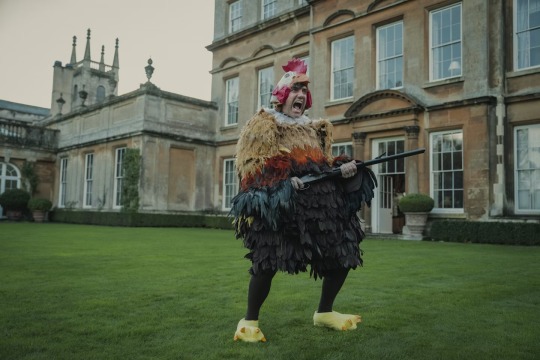
#the gentlemen#the gentlemen netflix#the gentlemen show#tv series#Netflix#streaming#the gentlemen review#guy ritchie#theo james#kaya scodelario#comedy#crime#thriller#weed farm#ray winstone#vinnie jones#The gentlemen tv series#gangster#British gangsters#daniel ings#joely richardson#giancarlo esposito#Pearce quigley#peter serafinowicz#guz khan#spin off#action
10 notes
·
View notes
Text

Pat Byrnes
* * * *
LETTERS FROM AN AMERICAN
October 20, 2024
Heather Cox Richardson
Oct 21, 2024
I had hoped to write tonight about the farm bill, which Eric Hovde, running for the Senate from Wisconsin although it’s not clear he lives there, could not talk about in the debate between him and incumbent senator Tammy Baldwin on Friday. “I’m not an expert on the farm bill because I'm not in the U.S. Senate at this point in time,” Hovde said. “So I can’t opine specifically on all aspects of the farm bill.”
The farm bill is one of our most important pieces of legislation. It establishes the main agricultural and food policies of the government, covering price supports for farm products, especially corn, soybeans, wheat, cotton, rice, peanuts, dairy, and sugar; crop insurance; conservation programs; and nutritional programs for 41 million low-income Americans, including the Supplemental Nutrition Assistance Program (SNAP) formerly known as food stamps. It must pass every five years but has been held up by Republican extremists in the House and is now in limbo. One would think that anyone running for Senate should know it pretty well, especially in Wisconsin, where in 2022 farms produced $16.7 billion in agricultural products.
Perhaps this is why the Wisconsin Farm Bureau Federation has endorsed Baldwin, the first Democrat in nearly twenty years to receive their support.
But I cannot take tonight to explain the really quite interesting history of the farm bill (and why it contains our nutrition programs) because the real story of today is that the Republican candidate for president is not mentally able to handle the job of the presidency, and Republican leaders are trying to cover up that reality.
These two stories are related.
That same quest for power that appears to be driving Hovde to seek a Senate seat without knowing anything about a bill that is hugely important to the people he would be representing appears to be preventing Republican leaders from admitting that their 78-year-old candidate has lost the mental capacity necessary for managing the most powerful nation in the world, including its vast stockpiles of nuclear weapons.
The United States has guardrails to prevent an incapacitated president from exercising power.
The question of what to do when a president was unable to do his job was not really a major question until the post–World War II years. While presidents before then had been weakened—notably, Woodrow Wilson had had a stroke—medical care was poor enough that those presidents who sustained life-threatening injuries tended to die from them fairly quickly. At the same time, the difficulties of the travel necessary for a national political career made politics a young man’s game, so there really weren’t rumblings of mental incapacity from age.
But Republican president Dwight Eisenhower had seen the grave damage military leaders could do when they were incapacitated and unaware of their inability to evaluate situations accurately, and knew that the commander-in-chief must have a system in place to be replaced if he were unable to fulfill the mental requirements of his position.
Eisenhower took office in 1953, and two years later, he suffered a heart attack. Vice President Richard Nixon and members of the Cabinet agreed to a working plan to conduct business while the president recovered, but presidential assistant Sherman Adams noted that the crisis left everyone “uncomfortably aware of the Constitution's failure to provide for the direction of the government by an acting President when the President is temporarily disabled and unable to perform his functions.”
When Eisenhower went on to need an abdominal operation and then to have a minor stroke, concerns mounted. As Congress discussed a solution, Eisenhower took matters into his own hands. He drafted an informal agreement that he presented to Nixon. If the president became temporarily unable to do the duties of the office, the document gave to the vice president the power of “Acting President.”
The need to figure out what would happen if modern medicine could keep alive an incapacitated president became apparent after the assassination of President John F. Kennedy in 1963. Not only did the question of a president’s incapacity have to be addressed; so did the problem of succession. Vice President Lyndon Baines Johnson was falsely rumored to have had a heart attack, and both the speaker of the House and the president pro tempore of the Senate were old and doubted that they could adequately fulfill the duties of the presidency themselves.
Congress’s solution was the Twenty-fifth Amendment to the Constitution, providing a system by which either the president or, if they were unable to realize their incapacity, members of the executive branch would transfer the powers of the president to the vice president. Eisenhower enthusiastically backed the idea that the nation should have coverage for a disabled president.
To anyone paying attention, it is clear that Trump is not in any shape to manage the government of the United States of America. He is canceling interviews and botching the ones he does sit for, while falling asleep at events where he is not actually speaking. He lies incessantly even when hosts point out that his claims have been debunked, and cannot answer a question or follow a train of thought. And his comments of the weekend—calling the vice president a “sh*t vice president,” telling a woman to get “your fat husband off the couch” to vote for him, and musing about a famous golfer’s penis—indicate that he has no mental guardrails left.
Today, in what apparently was designed to show Trump as relatable and to compete with the story that Vice President Harris worked at a McDonalds when she was in college, Trump did a photo op at a McDonalds in the swing state of Pennsylvania, where he took prepared fries out of the fryolator. It was an odd moment, for Trump has never portrayed himself as a man of the people so much as a man to lead the people, and the picture of him in a McDonald’s apron undercuts his image as a dominant leader.
But in any case, it was all staged: the restaurant was closed, the five “customers” were loyalists who had practiced their roles, and when Trump handed food through the drive-through window, he did not take money or make change.
"Now I have worked at McDonald's," he said afterward. "I've now worked for 15 minutes more than Kamala."
The fact that someone on Trump’s campaign leaked to Politico that he is “exhausted” is almost certainly a sign that people down the ranks are deeply concerned about his ability to finish the campaign, let alone run the country. But party leaders continue to stand behind him, raising echoes of their staunch support during Trump’s two impeachment trials.
In 2019 the House of Representatives impeached Trump for his attempt to coerce Ukraine’s president Volodymyr Zelensky and pervert the security of the United States to steal an election. The evidence was so overwhelming that Senator Ted Cruz (R-TX) noted: “Out of one hundred senators, you have zero who believe you that there was no quid pro quo. None. There’s not a single one.” But Republican senators—except Mitt Romney (R-UT), who voted to convict on one count—nonetheless acquitted Trump. “This is not about this president. It’s not about anything he’s been accused of doing,” Senate majority leader Mitch McConnell (R-KY) told his colleagues. “It has always been about November 3, 2020. It’s about flipping the Senate.”
Trump’s second impeachment by the House in January 2021 for incitement of insurrection ended similarly. In the Senate, McConnell refused to change the schedule to enable the Senate to vote before a new president was inaugurated, thus giving himself, as well as other Republican senators, an out to vote against conviction on the grounds that Trump was no longer the president. Seven Republican senators joined the Democrats to convict, but forty-three continued to back Trump. In a speech after the vote, McConnell said he believed Trump was responsible for the January 6, 2021, attempt to overturn the results of the 2020 presidential election but that he would have to answer for that behavior in court.
But nearly four years later, Trump has not had to answer in court because the Supreme Court, stacked with his appointees thanks to Republican senators, has said that he cannot be prosecuted for crimes committed as part of his official duties. While the courts sort out what counts as official duties, he is, once again, the Republican nominee for president. Leaders are standing behind him despite the fact he is demonstrating deeply concerning behavior.
When President Joe Biden decided not to accept the Democratic presidential nomination after his poor performance in his June debate with Trump, Republicans demanded that Vice President Harris and the Cabinet invoke the Twenty-fifth Amendment, despite the fact that Biden’s job performance continued to be exemplary. We learned later that during the time of the debate, he was negotiating a historic prisoner swap involving multiple countries to free twenty-four prisoners, including Americans Evan Gershkovich and Paul Whelan.
Nonetheless, that one poor debate performance was enough for Republicans to condemn Biden’s ability to govern the nation. Senator Eric Schmitt (R-MO) told the Fox News Channel that “Joe Biden has decided he isn’t capable of being a candidate; in so doing his admission also means he cannot serve as President.”
But Trump has been lying that immigrants are eating pets; calling voters fat pigs; basing his economic policy on a backward idea of how tariffs work; calling for prosecuting his enemies and making the civil service, military, and judiciary loyal to him; and praising a famous golfer’s “manhood”—hardly indications of a man able to take on the presidency of the United States.
And yet with regard to his mental acuity, Republican leaders offer only crickets.
LETTERS FROM AN AMERICAN
HEATHER COX RICHARDSON
#Pat Byrnes#Letters From An American#Heather Cox Richardson#Farm Bill#Election 2024#unfit#American history#25th Amendment#MAGA lies
5 notes
·
View notes
Text



more adriel
#the sims 4#sims 4#ts4#simblr#ts4 screenshots#the sims 4 screenshots#cafesulsul#cafesulsulbtt#btt#gen1brownsugarboba*#car: sims4cars-breezemotors gmc sierra#lot: ashleyplays richardson farm#i'm so proud of how handsome he came out bc male sims are not easy to create for me
3 notes
·
View notes
Text

#corn maze#richardson's farm#halloween#spooky#haunted house#haunted places#fall#autumn#fall aesthetic#pumpkin#pumkin patch
0 notes
Text
"In short:
Victorian farmers and volunteers have planted 750,000 trees to restore habitat for a critically endangered bird.
The Regent Honeyeater Project has brought together volunteers from all walks of life since it was launched in the 1990s.
What's next?
An ornithologist says the project is working wonders for the species and other wildlife.
--
John Paul Murphy is not an ecologist, but he knows a thing or two about trees.
The young cattle farmer from Winton in north-east Victoria has helped plant more than 750,000 trees as part of the Regent Honeyeater Project.
"Our involvement as a family goes back to the early 1990s, when the project first kicked off," Mr Murphy said.
The regent honeyeater is a critically endangered bird known for its black-and-bright-yellow colouring.

"Back in the day, millions of these birds would darken the sky from Adelaide up to Queensland," ornithologist Maggie Watson said.
"They're quite large compared to other honeyeaters, are highly nectar-dependent, and are one of the main pollinators of eucalypt trees."
Dr Watson, based in Burrumbuttock, New South Wales, said habitat fragmentation was a major reason the bird was threatened.
"When people started clearing farmland as part of colonisation in the 1800s, they removed all the productive, nectar-producing trees," she said.
"So that essentially wiped out the regent honeyeater's main food-base."
'Great for all wildlife'
Benalla cattle farmer and Regent Honeyeater Project president Rob Richardson said agriculture had claimed its share of the environment.
"We've destroyed a lot of habitat to create grazing and cropping land to the point where there are less than 500 wild regent honeyeaters left in Australia," he said.
"So now we're trying to restore the balance.
"We propagate all the trees in our plant nursery, and then plant them across the landscape to establish vegetation corridors."
Dr Watson said the project would significantly benefit the regent honeyeater population.
"The birds need to have 'roads' to get to flowering trees like eucalypts, and those roads happen to be other trees — so the more you plant, the better," she said.
"Tackling habitat fragmentation is great for all wildlife."
Huge volunteer effort
Mr Richardson said local volunteers were at the heart of the project.
"Over the last 30 years we've had many farmers donate land to be revegetated and over 40,000 volunteers help plant all the trees," he said.
Mr Murphy said the volunteers came from all walks of life.
"At our planting days, I've met university students, doctors, lawyers, biologists … and many of them come back year after year," he said.
Mr Murphy said it was nice to have a chance to get to know with people he may not otherwise have met.
"Farming can be pretty isolating," he said.
"But when you're planting, learning, and just getting your hands dirty together, the conversations you have are really unique.""
-via ABC News Australia, December 2, 2024
#birds#ornithology#australia#honeyeater#bird photography#wild birds#birdblr#endangered species#ecosystem restoration#habitat#conservation#good news#hope
739 notes
·
View notes
Text
Monsters in the Dark | Nikto x Reader | Part 1
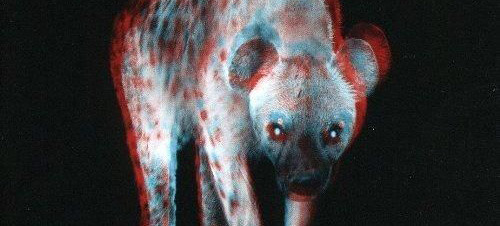
First "official" part of Nikto x Reader fic set in the cowboy AU originally created by @ghouljams once again staring our darling Sputnik. Makes a lot more sense if you read the prologue which can be found linked below.
A/N: Did I spend several hours watching Kevin Richardson videos with him hanging out with his hyenas while writing this? Yes. Do I regret it? Absolutely not. This also ended up a lot longer than I was expecting lmao.
Warnings: Depictions of Minor Medical Procedures.
Masterlist: CoD Masterlist
Prev Part | Next Part
When working as a rural vet there’s a surprising amount of driving involved. Travelling from the clinic to farms and huge properties miles and miles away for in-person appointments and consultations can understandably take several hours out of your day. Most of the time you don’t even have working cell service to help guide you to your destination and you’re forced to either memorise the route beforehand or turn to your old reliable map.
You’re new to the area, having decided to spend some time travelling across the US for the potential experience it could offer you. You’ve done plenty of work on stations in the north of Australia, helping jackaroos to manage any illness within their herds, always moving from place to place, and so Texas seemed like the perfect place to start your travels.
While training, however, you had been given an offer to travel to South Africa to work with the numerous wildlife there both on reserves and in zoos. It was the best year of your life and ignited a passion for working with exotic animals.
Travelling the US for work was an exciting opportunity to help rural communities with their livestock and to work with the numerous native species you’ve never had the chance to encounter in your everyday life. This little town was just another step on your travels and, so far, hadn’t really stood out to you more than any other small town.
So, it isn’t out of place for you to be driving down a lengthy driveway through the woods and pulling up to a rundown old house. What is strange, is the huge creature sitting at the top of the porch.
The hyena is massive. It’s powerfully built with pure muscle, and no doubt would be able to tear you to pieces if it chose to. It’s so distracting that for a long time you don’t even notice the huge man standing beside your car. He looks just as strong as the hyena sitting behind him and you’re not sure how you missed his approach.
When the lady at the front desk informed you that there was a gentleman asking for a veterinarian with experience handling exotics, you were thinking perhaps a rare lizard, or an uncommon species of parrot. What you weren’t expecting was to see an adult hyena staring you down.
You’re more than a little reluctant to leave the safety of the vehicle, but upon receiving a jerk of the head from the man, you cautiously exit the car. Not once do you take your eyes off the predator while you quickly grab your bag from the backseat.
Having dealt with hyenas before, you know better than to show any kind of fear, forcing your shoulders down from your ears and starting to take calm, deep breaths. You offer your name to who you presume is the animal’s owner and hold out a hand for him to shake.
The man, “Nikto,” as he grunts to you, takes your hand after a moment and gives it a firm shake. You’re used to farmers having a strong grip, so you simply offer the man a bright grin. “I take it this is the patient?” you ask, nodding your head toward the hyena in question.
The man is clad head to toe in all-black clothing. Typical cowboy hat, black denim jeans, and a shirt that has a high collar and sleeves that reach all the way down to his wrists where they meet with a pair of leather gloves. All regular clothing, albeit a little dark for such a hot climate, but what really sets him apart is the dark neck gaiter covering most of his features.
You would think it odd for him to be hiding his face on his own property, but you’ve heard that there’s several other ex-military men in the town that also prefer bandanas or masks to showing their bare faces. It looks intimidating, especially given just how huge the guy is, but at the end of the day he’s your client and it isn’t your place to judge.
“да,” Nikto nods, “this is Sputnik.” He looks you up and down, before asking, “you are comfortable with her, yes?”
“Uh, yeah, I’ve worked with hyenas before,” you confirm. That, unfortunately, doesn’t make it any easier or less nerve-wracking to be so close to an unrestrained predator. Normally, there’s at least a fence between you and any of the wildlife you’re treating, but hopefully the animal is somewhat friendly given it’s allowed to roam free.
At your confirmation, he lets out a sharp whistle and snaps out a harsh, “КО МНЕ!” Causing the animal to leap to her feet and sprint across the grass to her owner’s side.
You try not to jump when Sputnik runs directly toward you but manage to keep a handle on your reactions. Much to your relief, however, rather than tackling you to the floor and tearing your throat out, the hyena starts laughing excitedly and running circles around you. She’s clearly very curious, stopping every few seconds to try and sniff at you from a distance.
You can imagine it would be an intimidating sight for anyone who has never encountered a hyena before, but she’s clearly just excited to meet someone new. “Is she normally this excited to meet new people?” you ask, unable to resist the smile that grows on your face as Sputnik starts to playfully nip at Nikto’s legs.
The man huffs, crossing his arms over his chest, “no.”
You’re beginning to understand that Nikto is not one for making conversation.
As Sputnik calms again, you watch her wander around the area. The issue becomes clear to you quite quickly in the form of a slight limp on one of her hind legs. She seems to otherwise be bright, alert and responsive, only the sore leg causing her problems.
You run through the basic questions about the problem, how long it’s being going on, and how her behaviour has been recently. You quickly take notes on her previous medical history while keeping an eye on Sputnik. After taking down her information, you ask Nikto to bring her to one of the old sheds so you can begin the exam.
She’s a beautiful hyena, and despite not having the behaviour of a domesticated dog, she can somewhat follow her owner’s commands. After seeing Nikto tapping the top of one of the tables, she hops up into a bench for you to more easily inspect her body.
With Sputnik firmly restrained by her owner, you gently reach out for her hind paw. You softly palpate the area, taking note of the large amount of swelling, particularly in the area between two of her toes. After glancing up to ensure she isn’t getting too stressed, you pull apart the toes, spotting a nasty yellow lump of what is presumably infection.
As you check over the area, you notice something black sticking out of the wound. With your trusty pair of tweezers you take hold of the object and begin to gently tease it out of the swollen mass. Sputnik’s leg twitches slightly, clearly not happy about someone touching her sore paw, but after a few soft words of encouragement she settles once again.
Your grip on the object slips a few times, but eventually you’re able to pull it free. It’s a nasty thorn, a whole inch in length that was buried in the poor animal’s foot. Just removing it causes a flood of pus to begin squirting from the wound and you’re thankful for the medical gloves you’re wearing, because it is far from a pleasant smell.
Sputnik whines, trying to pull her paw away again, but with your client still holding her head in place you can continue to express the rest of the fluid without causing her much more distress. With a small syringe of saline, you quickly flush out the remaining chunks of hardened infection until the liquid runs clear.
It’s a small enough opening that she won’t need the wound packed or any stitches to keep it closed. Instead, you spray the area with a thick layer of Blu-Kote to prevent any further infection.
“I'll need to give her a quick antibiotic injection to make sure it won’t come back, just make sure she’s restrained, okay?” You receive a grunt of acknowledgement, then provide the needed shot. Sputnik tries to turn and snap at you, but with Nikto in the way she ends up biting at thin air and growling in frustration.
You gently rub at the hyena’s back with a loving coo, “what a brave girl, you did so well!”
After being released she turns to regard you for a moment, before squealing happily and trying to lick at your face. It seems you’re already forgiven for your cruel transgressions against the poor girl. “Looks like this was the cause of the trouble,” you explain, briefly showing Nikto the old thorn you’d removed.
Nikto turns his gaze to Sputnik, rolling his eyes before gently cuffing her around the back of the head. “Долбоеб,” he mutters, ignoring the way she starts to playfully bite at one of his gloved hands.
You’re not entirely sure what he said, but no doubt it’s some sort of insult. Not that Sputnik seems to care, hopping down from the table and trotting around the barn as if the last ten minutes didn’t occur.
“I gave her a strong antibiotic, but spotted hyenas are pretty notorious for their infections being resistant to treatment, so if she starts getting worse or isn’t improving then be sure to give me a call and we’ll look at if there’s anything we need to do,” you explain, keeping an eye on how Sputnik moves on her feet now.
“Understood,” the man nods, standing ramrod straight with his arms crossed over his chest.
Clearly this man still isn’t very interested in a conversation, given he has nothing further to add and almost seems to be pointedly ignoring you. It’s a little uncomfortable, but he’s certainly not the first... interesting character you’ve dealt with in your career and he won’t be the last. “Do you have any other questions about the treatment?” you ask.
“нет,” he grunts, before quickly adding, “no.”
You nod, offering the man a genuine smile, “well, I’m glad I could help out.” You remove your gloves and quickly start packing away the tools you’d been using, “the office will send through an invoice to your email, so you can pay online or head down to the clinic to pay in person.”
He just nods, watching you silently as you finish up collecting your tools and placing them back away into your bag. His eyes seem to burn into you, his icy gaze piercing through your body and directly into your very soul. You’re not sure how comfortable you are having your innermost self so openly exposed to someone you’ve only just met, but quickly shake off the feeling.
As soon as you’re finished packing, you pull out one of your personal cards, handing it to Nikto. He stares at the piece of cardboard for a long moment, and you quickly explain, “my card, it’s got my number on it in case you ever need help.” You can’t imagine how difficult it must be for him to find someone with genuine experience treating large predatory animals and you’re more than happy to offer as much of your expertise as he wants.
Nikto awkwardly goes to reach for the card with one of his hands, only to pause midway and reach for it with the other one. He fleetingly glances over the card, then tucks it into one of his shirt pockets.
While you make your way back to your car, Nikto calls Sputnik back over and ensures the animal walks at his heels. She doesn’t seem happy with this command, whining and laughing as she looks between her master and you. She very obviously wants to run after you and play but knows better than to ignore her owner.
Sputnik sits next to Nikto as the man watches you quickly pack everything back into your car. She keeps looking between you and Nikto, as if silently begging him to allow her to go back to you for more attention, but he stands strong against her sad eyes. It’s cute, really, since it likely means that weaponized puppy dog eyes are an effective tool in getting the stoic man to crumble if she’s still attempting to use them against him.
Before you hop into the car you give Sputnik a wave, laughing when she cries at you. “Bye, sweetheart!” you coo again, before offering her owner a wave and a smile.
Looking into the rear-view mirror on your way back toward the main road, you can see both Nikto and Sputnik watching you leave. They’re an odd pair, but it’s been a while since you had the chance to work with such a beautiful animal and you can’t help looking forward to seeing both her and her strange human again sometime soon.
#writing#call of duty modern warfare#reader insert#fanfic#call of duty nikto#nikto x reader#cowboy au
267 notes
·
View notes
Text
March 30, 2025
HEATHER COX RICHARDSON
MAR 31 READ IN APP
On the Fox News Channel this morning, Director of the National Economic Council Kevin Hassett said: “President Trump has a long run vision of a golden age of America and we’re working really, really hard to get it out there in time. But I can't give you any forward-looking guidance on what's gonna happen this week. The president has got a heck of a lot of analysis before him, and he's gonna make the right choice, I'm sure.”
The National Economic Council is the primary group the president uses to develop domestic and international economic policy, so the fact that Hassett appears to have no idea what’s coming is concerning. Trump has declared April 2 “Liberation Day” because he will announce big new tariffs, posting on his social media site on March 21: “For DECADES we have been ripped off and abused by every nation in the World, both friend and foe. Now it is finally time for the Good Ol’ USA to get some of that MONEY and RESPECT, BACK. GOD BLESS AMERICA!!!”
Other Trump regime officials appear similarly uninformed about Trump’s plans. Fox News Channel personality Shannon Bream asked Peter Navarro, Trump’s senior counselor for trade and manufacturing, what to say to consumers who worry that tariffs are going to raise prices, he answered: “Trust in Trump.” He then claimed that “tariffs are tax cuts,” which makes sense only if he means that tariffs, which raise prices on consumers, might provide enough revenue for the government to enable Republicans to justify tax cuts on the wealthy and corporations.
Trump campaigned on the promise to “immediately bring prices down, starting on Day One,” but his tariffs have already helped to push inflation upward. Josh Dawsey and Ryan Felton of the Wall Street Journal reported on Thursday that Trump warned the chief executive officers of “some of the country’s top auto manufacturers not to raise prices because of the 25% tariffs he has just put on cars and car parts, telling them that the tariffs are good for them.
On Saturday, Trump denied he had made such a request and told NBC News’s Kristen Welker that “I couldn’t care less if they raise prices, because people are going to start buying American cars.”
“I couldn’t care less,” he repeated. “I hope they raise their prices, because if they do, people are going to buy American-made cars. We have plenty.” A White House aide told NBC News that the president was referring to foreign car prices.
And then there is Friday’s story that Secretary of Defense Pete Hegseth has been taking not only his brother but also his wife along with him to “meetings with foreign military counterparts where sensitive information was discussed.” Katherine Long, Max Colchester, Daniel Michaels, and Lindsay Wise of the Wall Street Journal note that her inclusion in such meetings is unusual. Jennifer Hegseth also accompanied Hegseth to his private meetings with senators during the process of his Senate confirmation, “making it awkward to ask questions about allegations related to infidelity and sexual misconduct.”
Both Trump and Hegseth have made it their goal to purge the United States of what they call “Marxism” and what Hegseth calls “woke sh*t”: that is, the racial, gender, and religious diversity that Americans have embraced since World War II. That means taking the government the country has built over the past 80 years down to the ground and rebuilding it as they imagine it was before, with men like them in charge.
The Trump regime is the result of at least 45 years of Republican rhetoric that undermined the idea of a government that worked for the good of everyone by claiming that such a government was “socialism” or “Marxism.” That argument had nothing to do with actual Marxism, which called for the people to take over farms and factories, and everything to do with America’s peculiar history.
During the Civil War of the 1860s, the Republicans in Congress both ended human enslavement in the U.S. except as punishment for crime and invented the nation’s first system of national taxation, including the income tax. After the war, racist former Confederates in the South refused to accept the idea that Black Americans were equal to their white neighbors and tried to force formerly enslaved people into subservience. To stop that from happening, Americans in 1868 added the Fourteenth Amendment to the Constitution, putting the weight of the federal government behind equal rights. In 1870, Americans added to the Constitution the Fifteenth Amendment, guaranteeing the right of Black men to vote. Also in 1870, Congress established the Department of Justice to prosecute those in the South who continued to persecute their Black neighbors on grounds of race.
In response, former Confederates in 1871 began to maintain—falsely—that they had never objected to Black rights on racial grounds. What they opposed, they said, was that poor Black men, impoverished because of their time in slavery, had the right to vote. Those men would, they said, vote for services like roads and schools and hospitals, and such services could be paid for only through tax levies on propertied Americans who overwhelmingly were white men. Thus, permitting Black men to vote meant “socialism” that would destroy the United States. To restore true American values, former Confederates and their northern counterparts insisted, Black Americans must be shut out of a voice in government.
That rhetoric resurfaced after World War II. In that era, the vast majority of Americans embraced a government that worked for everyone by regulating business, providing a basic social safety net, promoting infrastructure, and protecting civil rights. But those Republicans eager to avoid regulation and taxation reached back to Reconstruction to insist that a government that worked in the interest of all Americans was redistributing wealth from hardworking Americans to undeserving minorities and women. Restoring true American values, they said, meant making sure that “Marxists” and minorities could not influence politics, especially after the 1965 Voting Rights Act restored voting rights to Black Americans and people of color.
That rhetoric that tied racism and taxes elected Ronald Reagan to the White House in 1980, and it has since metastasized until the top seven donors to the 2024 political cycle together gave almost a billion dollars to Republicans, with Elon Musk alone contributing more than $291 million. The list, compiled by Open Secrets, shows that Democratic donors don’t kick in until number eight on the list, former New York City mayor Michael Bloomberg, who gave slightly more than $64 million to Democrats. George Soros, the Republicans’ supervillain, didn’t make the top 25. As those wealthy donors wish, the Trump administration is shredding the post–World War II government and has prioritized tax cuts for the wealthy and corporations.
Trump’s government is also firing women, Black and Brown Americans, and gender minorities from public positions and working to erase them from our history. MAGA Republicans have fired up their base against immigrants they claim are “invading” the United States, an exaggerated vision in which White House deputy chief of staff Stephen Miller, for example, claims that “[w]e were invaded and occupied. Entire neighborhoods were conquered. Entire towns were subjugated. Our treasury was in the plundered. [sic]”
That wildly exaggerated vision has enabled Republicans to justify throwing overboard the due process on which American rights are based. On Friday, Representative Victoria Spartz (R-IN) told booing constituents: “You violated the rules, you are not entitled to due process.” In fact, in the United States, the due process of law is what establishes whether someone has violated the “rules,” otherwise known as the law.
Just how profoundly the administration is violating civil rights came through today when news broke of an “Alien Enemies Act Validation Guide” obtained by the American Civil Liberties Union (ACLU). The guide lays out a point system by which officials from Immigration and Customs Enforcement (ICE) can determine if an immigrant is eligible for rendition to the Terrorism Confinement Center (CECOT) in El Salvador. The guide tags people as members of the Venezuelan Tren de Aragua (TdA) gang if they reach 8 points on a point system in which officers determine what seems to them a “gang tattoo” or a gang sign, or interact with those ICE says are gang members.
Aaron Reichlin-Melnick of the American Immigration Council notes that nearly all of the criteria on the list are subjective, which helps to explain why so many people who are apparently unaffiliated with TdA were swept up in the rendition. “With this checklist,” Reichlin-Melnick writes, “ICE can declare any Venezuelan an ‘Alien Enemy’ without ANY concrete evidence—based solely on an ICE officer's interpretation of tattoos and hand signs which may be completely innocent or the bad luck of having a roommate ICE thinks is TDA.”
The MAGA Republicans’ worldview is the same as that of the Confederates who preceded them: some people are better than others and have the right to rule. It is no coincidence that Trump recently called for the restoration of Confederate statues. But if that worldview is correct, then getting rid of President Joe Biden’s inclusive economy and hiring practices and putting white men in charge of everything should mean exactly what Trump is promising: a golden age of America.
Instead, the strong economy the Biden administration created is tumbling, and Trump administration officials seem to have no plan to stop it except to “Trust in Trump.” The officers in charge of keeping the nation safe have instead broken the law in an epic fail demonstrating that they have no foreign policy plan except military strikes highlighted with emojis. They appear to disdain national security procedures.
And the Signal scandal appears to have been just the tip of the iceberg. Tonight, Alexander Ward, Josh Dawsey, and Meridith McGraw of the Wall Street Journal reported that two U.S. officials told them that National Security Advisor Mike Waltz “has created and hosted multiple other sensitive national-security conversations on Signal with cabinet members.”
When the former Confederates called for cutting Black men out of the vote in the 1870s by insisting their votes would usher in socialism, Americans didn’t know whether a government elected by a wider range of Americans than in the past would thrive. In 2025 we have experienced not only 80 years of a government that created a strong economy and a stable world as it worked for all Americans. We have also experienced the four years recently past, in which the Biden administration demonstrated that such a government worked. It left us with a booming economy and strong national security that the Trump regime is now mangling.
Nonetheless, Trump is digging into the position that some people are better than others and have the right to rule. Today he told NBC News that he is considering a third presidential term, although that is explicitly unconstitutional. “I’m not joking,” he said, “There are methods which you could do it.”
—
11 notes
·
View notes
Text








🌈 Queer Books Out December 2023 🌈
🌈 Good afternoon, my bookish bats! Struggling to keep up with all the amazing queer books coming out this month? Here are a FEW of the stunning, diverse queer books you can add to your TBR before the year is over. Remember to #readqueerallyear! Happy reading!
❤️ Caught in a Bad Fauxmance by Elle Gonzalez Rose 🧡 Heartstopper #5 by Alice Oseman 💛 This Cursed Light by Emily Thiede 💚 All The Hidden Paths by Foz Meadows 💙 Vampires of Eden: Book One by Karla Nikole 💜 Not My Type by Joe Satoria ❤️ Storm in Her Heart by KC Luck 🧡 Eternal Embrace by Luna Lawson 💛 A River of Golden Bones by A.K. Mulford 💙 Tomb of Heart and Shadow by Cara N. Delaney 💜 Through the Embers Volume 2 by Adriana Sargent 🌈 Lucero by Maya Motayne
❤️ The Poison Paradox by Hadley Field & Felix Green 🧡 Second Chances in New Port Stephen: A Novel by TJ Alexander 💛 Matrimonial Merriment by Nicky James 💚 Under the Christmas Tree by Jacqueline Ramsden 💙 Every Beat of Her Heart by KC Richardson 💜 The Memories of Marlie Rose by Morgan Lee Miller ❤️ Playing with Matches by Georgia Beers 🧡 Always Only You by Chloe Liese 💛 Fire in the Sky by Radclyffe and Julie Cannon 💙 Nuclear Sunrise by Jo Carthage 💜 The Naked Dancer by Emme C. Taylor 🌈 Resurrections by Ada Hoffmann
❤️ Destiny’s Women by Morgan Elliott 🧡 Framed by Kate Merrill 💛 The Spoil of Beasts by Gregory Ashe 💚 Catered All the Way by Annabeth Albert 💙 A Cynic’s Christmas Conundrum by L.M. Bennett 💜 Yours for the Taking by Gabrielle Korn ❤️ One Swipe Away by Nicole Higginbotham-Hogue 🧡 The Gentlemen’s Club by A.V. Shener 💛 A Death at the Dionysus Club by Melissa Scott and Amy Griswold 💙 Secrets of the Soul by Holly Oliver 💜 Like They Do in the Movies by Nan Campbell 🌈 Limelight by Gun Brooke
❤️ Heart First by S.B. Barnes 🧡 Grave Consequences by Sandra Barret 💛 Haunted by Myth by Barbara Ann Wright 💚 Invisible by Anna Larner 💙 The Murders at Sugar Mill Farm by Ronica Black 💜 Coasting and Crashing by Ana Hartnett ❤️ Fairest by K.S. Trenten 🧡 A City of Abundant Opportunity by Howard Leonard 💛 The Dark Side of MIdnight by Erin Wade 💙 Mending Bones by Merlina Garance 💜 Transform by Connal Braginsky & Sean Ian O’Meidhir 🌈 The Apple Diary by Gerri Hill
❤️ TruLove by Nicole Pyland 🧡 Structural Support by Sloan Spencer 💛 Whiskey War by Stacy Lynn Miller 💚 Overkill by Lou Wilham 💙 Heart of Outcasts by Nicole Silver 💜 In the Shadow of Victory by J. E. Leak ❤️ Just Like Her by Fiona Zedde 🧡 Gingerbread: Claus For Christmas by Miski Harris 💛 Lies are Forever by C. Jean Downer 💙 The Boys in the Club by M.T. Pope 💜 Lasting Light (Metal & Magic) by Michelle Frost 🌈 Tell No Tales by Edie Montreux
❤️ Radio Silence by Alice Oseman 🧡 Even Though We're Adults Vol. 7 by Takako Shimura 💛 The Accidental Bite by Michelle St. Wolf 💚 Mated to the Demons by Taylor Schafer 💙 Someday Away by Sara Elisabeth 💜 Gatherdawn Luminia Duet Volume 1 by Lee Colgin ❤️ Curse of Dawn by Richard Amos 🧡 Healing the Twin by Nora Phoenix 💛 Ride Me by KD Ellis 💙 How to Bang a Vampire by Joe Satoria 💜 Cthulhu for Christmas by Meghan Maslow 🌈 Prestige by Toni Reeb
❤️ Don't Look Down by Jessica Ann 🧡 Winter and the Wolves by Chris Storm and Kinkaid Knight 💛 Hat Trick by Ajay Daniel 💚 Starborn Husbands: Return to the Pleiades by S. Legend 💙 Dead Serious Case #4 Professor Prometheus Plume by Vawn Cassidy 💜 Practice for Toby by Amy Bellows ❤️ The Siren's Song by Crista Crown 🧡 Hers to Hunt K.J. Devoir
#queer fiction#queer romance#queer community#queer books#queer#book releases#book release#sapphic books#sapphic romance#lesbian#lesbian fiction#lesbian books#wlw romance#wlw fiction#gay books#book blog#booklr#book lovers#batty about books#battyaboutbooks#books to read
115 notes
·
View notes
Text
Richardson Farm, Spring Grove IL
#spring grove#richardson farm#pink tulips#tulip video#tulips#spring flowers#naturecore#cottagecore#cozy cottage#gardencore#nature
10 notes
·
View notes
Text

#my photo#Richardsons Farm#spooky#fall#autumn#pumpkins#halloween#nature#scenery#landscapes#wanderlust#aesthetic#adventures#vibes#photography#s20#photographers on tumblr#pumpkin
37 notes
·
View notes
Text
Anderson Bonner
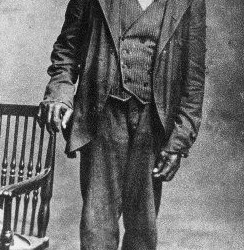
Prominent Texas landowner and businessman Anderson Bonner was born enslaved in Alabama around 1839. Not much is known about his younger years. Family history states that Bonner was given as a wedding present to the daughter of his former master, who moved him from Alabama to Arkansas. Anderson may have been “refugeed” in Texas during the Civil War when nearly 100,000 enslaved people from neighboring states were forcibly brought there by slaveholders to avoid the Union Army freeing them as it gradually occupied more of the Confederacy. If Bonner was in Texas by 1865, he—like other Lone Star state enslaved people—gained his freedom when Union General Gordon Granger and Union Troops under his command arrived in Galveston on June 19, 1865 and pronounced the end of slavery. That announcement became the basis for the Juneteenth holiday.
Sometime in 1865 Bonner married a woman known only as Eliza. Over time the couple had ten children, Anderson Jr, Newton, William, Ed, John, Andy, Mary, Martha, Charlie and Nash. Bonner arrived in Dallas, Texas, around 1870 with his brother Louis, and sister Caroline and they worked on a farm in the White Rock Creek area. Bonner by this time had acquired modest wealth. The 1870 Census lists his financial worth at $275 or approximately $5,456 in 2020 dollars. On August 10, 1874 Bonner purchased sixty acres of land, signing the deed with an “X”, as he never learned to read or write. He soon began leasing his land and the houses on it to cotton growing sharecroppers. With the money he earned, he bought more land. Bonner eventually amassed over two thousand acres of land in what is now North Dallas and the Dallas suburb of Richardson. The Medical City Dallas Hospital now sits on what was once the Bonner farm and the North Central Expressway divides Bonner’s original property.
Census records in 1900 reveal that six of the ten Bonner children still lived on the Bonner farm. Cotton, corn, and fruits were grown on the family farm worked mostly by Bonner, his children, and sharecroppers. Bonner’s sister, Caroline married into the Fields family, and one of her children married into the Giddings family, both prominent African American families of Dallas in the late 19th Century. In 1903, Eliza was killed in a oil lamp explosion in the family home. Sixty-four-year-old Bonner then married a woman named Lucinda, but the couple had no children.
Anderson Bonner passed away at the age of 82 in 1920. He was buried in White Rock Colored Union Cemetery (now White Rock Garden of Memories Cemetery), in Addison county. His descendants established the Anderson Bonner Endowment Scholarship that helps support Richardson Public School students who attend Prairie View A&M University. The first public school for black children in the North Dallas, the Vickery and Hillcrest school was renamed the Anderson Bonner School before its closing in 1955. The city of Dallas officially named the park west of Medical City Hospital, Anderson Bonner Park in 1976. The park consists of 44.1 acres of Bonner’s original land.
60 notes
·
View notes
Text
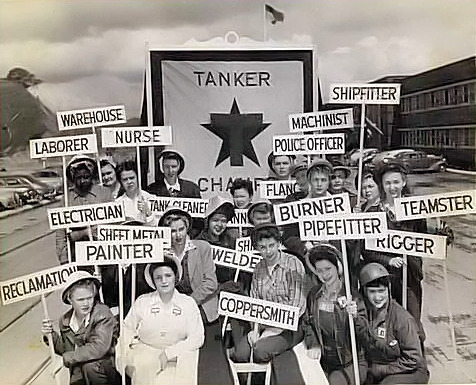

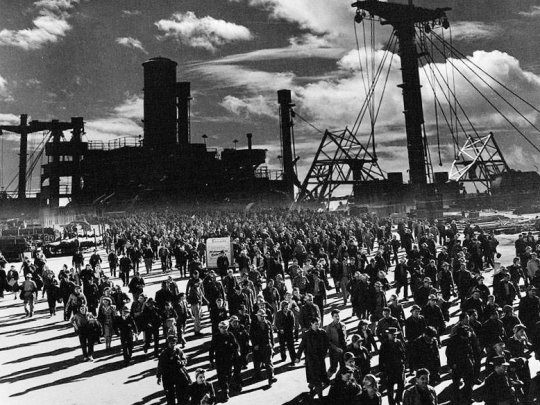
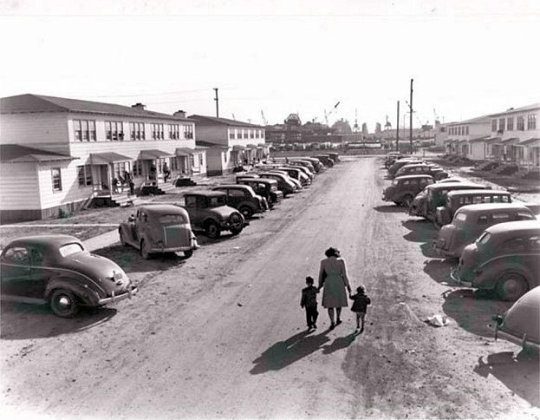
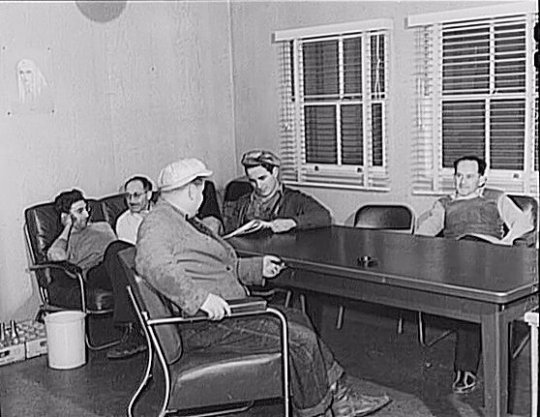
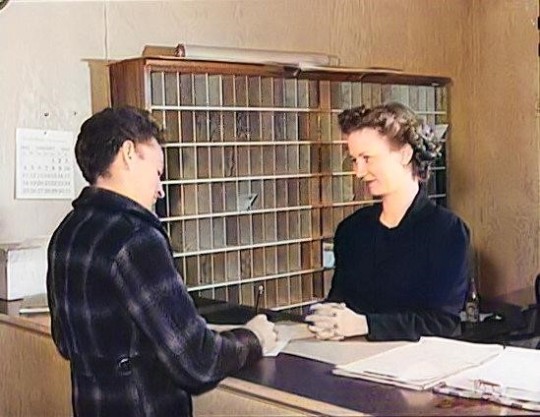
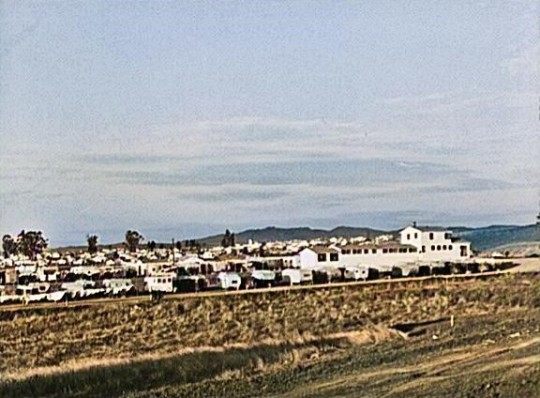
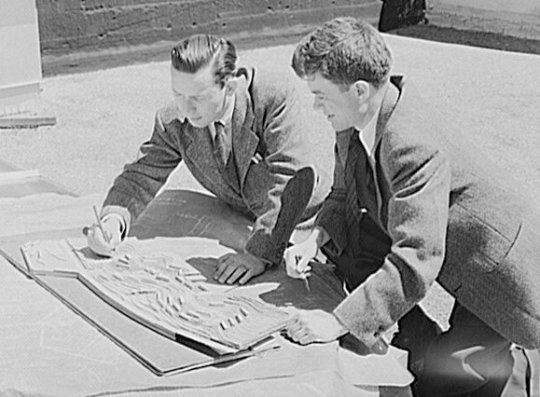
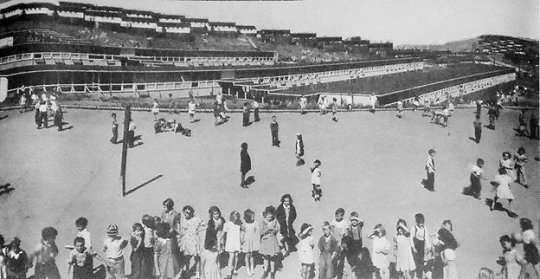
Industrial Powerhouse
In the decade prior to 1940, America's shipyards launched only 23 ships. In the five years after 1940, American shipyards launched 4,600 ships. San Francisco Bay Area shipbuilders produced 20 percent of warship tonnage and almost 45 percent of all the cargo shipping tonnage built in the entire nation during World War II. The war lasted 1,365 days. In that span of time Bay Area shipyards built 1,400 vessels--a ship a day, on average. In addition, ships arrived constantly for maintenance and repair, sometimes scheduled, but often battle damaged and in urgent need of repair. This incredible industrial effort depended on a combination of shipyards and workers that had not existed prior to the outbreak of war.
One astounding example was due to the U.S. Maritime Commission’s dire need for cargo ships, San Francisco’s Bechtel Company was approached on March 2, 1942, and asked to propose a new shipyard location that could be operational within a year. Bechtel proposed building a shipyard with 6 building ways in Sausalito and the site was approved on March 12, 10 days later. Six days after that dirt was being blasted and moved to construct what became Marinship. Construction of Liberty ships on the building ways began in parallel with construction of the ways. Keel blocks were added as every foot of the ways was built extending inland from Richardson Bay. Similar feats took place around the San Francisco Bay Area as shipyards sprung up in Alameda, Richmond, Napa, South San Francisco, Oakland, and Antioch, while at the same time Mare Island and Hunters Point Naval Shipyard facilities doubled and tripled in size.
Tens of thousands of workers of every type were required to support the construction and repair activities resulting in a huge influx of workers from around the country. That workforce overwhelmed the existing housing stock in the Bay Area. In 1942 Mare Island officials decried the fact that workers were quitting as fast as new ones could be hired to due to the lack of housing. Federal agencies and local governments mobilized and together found innovative ways to rapidly create the housing needed for the burgeoning workforce. Those agencies accomplished so much so fast because of unprecedented cooperation amongst them, readily available funds and the dearth of regulation.
San Francisco grew from a city of 634,000 residents in 1940 to 774,821 by 1950. In Contra Costa County, the little towns of Walnut Creek, Orinda and Concord saw their populations double, then double again. In Vallejo housing units were constructed by the Public Buildings Administration, the Farm Security Administration, and the newly formed Vallejo Housing Authority. Incredibly, during a time of war and scarce personnel and construction resources, housing developments in Vallejo were generally completed within 6 months of contract award and would eventually provide housing for over 27,000 people. But even that was not enough, Mare Island Naval Shipyard's workforce had swollen to over 40,000 workers that simply could not all be housed within Vallejo. That problem was solved with an around-the-clock bus Service that brought 14,000 workers to and from Mare Island from as much as 75 miles away 7 days a week. Those buses would travel the equivalent distance of the circumference of the earth every day.
The enabler for this incredible productivity was the existence of total war involving the entire economic, industrial, and scientific capabilities of our country. That threat to our freedom created a unity our nation had never experienced before or since. The San Francisco Bay Area with its over 30 shipyards, large and small, and scores of machine shops, and metal and wood fabricators joined together to create the world's largest combined shipbuilding complex. In all, 244,000 people worked in Bay Area shipyards and prefabricated components were shipped by rail to Mare Island Naval Shipyard from construction shops across the nation. The output from San Francisco Bay Area joined the stream of material pouring out of shipyards and factories throughout the country providing the force behind Franklin Roosevelt’s use of the slogan “America as the Great Arsenal of Democracy.” This was all accomplished with no satellites, no internet, no computers, and no cell phones.
Dennis Kelly
#mare island#naval history#san francisco bay#us navy#vallejo#san francisco#world war 2#world war ii#world war two#california#Bay Area#ship building#Richmond#Sausalito#Alameda#housing#housing crisis
12 notes
·
View notes
Text

Baltimore Bridge collapse
* * * *
At about 1:30 this morning, local time, the Dali, a 985-foot (300 m) container ship operating under a Singapore flag, struck the steel Francis Scott Key Bridge in Baltimore, Maryland, that spans the lower Patapsco River and outer Baltimore Harbor. The bridge immediately collapsed.
Eight maintenance workers were on the bridge repairing potholes when the ship hit. Two were rescued from the water, but the other six remain missing. Search and rescue operations were complicated by twisted metal and debris from the collapsed bridge. This evening, the Coast Guard called off its search. Tomorrow morning, divers will begin recovery efforts.
It is possible there were motorists on the bridge, too, but fewer than there might otherwise have been. Crew members issued a “Mayday” call—an internationally recognized word meaning distress—that Maryland police heard. At 1:27, police radio recorded an officer saying a ship had lost control of its steering as it approached the bridge, and to stop traffic and evacuate the area. There were cars submerged in the water, but they may have belonged to the construction workers.
The loss of the bridge will tangle traffic and disrupt supply chains. Named for the Maryland lawyer who in 1814 wrote the poem that became the national anthem, the Francis Scott Key bridge carries I-695, the Baltimore Beltway, and is used by about 30,000 people a day.
The Port of Baltimore is one of the nation’s largest shipping hubs, especially for both imports and exports of cars and light trucks. About 850,000 vehicles go through that port every year. So does more than 20% of the nation’s coal exports. In 2023 the port moved a record-breaking $80 billion worth of foreign cargo. Now the shipping lane is closed and must be cleared of debris.
“There is no question this will be a major and protracted impact on supply chains,” Transportation Secretary Pete Buttigieg said from Baltimore today.
Perhaps learning from the 2023 East Palestine, Ohio, train derailment, when the government response was fast but quiet and thus opened a window for right-wing complaints they weren’t doing enough, the administration was out front today. Buttigieg rushed to the scene from a trip out West, and Maryland governor Wes Moore told reporters Buttigieg had called him at 3:30 am, just two hours after the crash.
By around 6:00 am, the National Transportation Safety Board already had a team of 24 people on the scene to launch an investigation into the cause of the collision.
Speaking today, President Joe Biden said: “I’ve directed my team to move heaven and earth to reopen the port and rebuild the bridge as soon as…humanly possible. And we’re going to work hand in hand…to support Maryland, whatever they ask for. And we’re going to work with our partners in Congress to make sure the state gets the support it needs. It’s my intention that federal government will pay for the entire cost of reconstructing that bridge, and I expect…the Congress to support my effort.”
Former member of President Obama’s 2012 campaign Jason Karsh noted Biden’s speech and said on social media: “[B]ecause Biden got infrastructure spending done for the first time in over a generation, and because [Pennsylvania] was able to rebuild that bridge that collapsed in record time, Dem[ocrat]s have the credibility to say things like this. Competence in government matters.”
It remains far too soon for any solid understanding of what caused the deadly crash.
Despite the impossibility of solid information in the hours immediately after the collision—or perhaps because of it—verified accounts on X (formerly Twitter) began spreading conspiracy theories. They posted that the accident was linked to terrorism, Jewish people, or diversity, equity, and inclusion (DEI) programs. “Did anti-white business practices cause this disaster?” one posted. Conspiracy theorist Alex Jones wrote that the collision was “deliberate” and that “WW3 has already started.”
Technology reporter Taylor Lorenz, who studies social media patterns, explained in the Washington Post that many of these accounts are “engagement farming.” This is the practice of posting extremist comments to generate attention, which can then be monetized by, for example, getting a cut of advertising that appears near those comments. Comments with heavy engagement can receive thousands of dollars.
For a long time now, America’s political right has riled people up with wild political rhetoric to get them to buy stuff. Just today, Trump began to hawk Bibles for $59.99, plus shipping and handling, with a video message saying “Religion and Christianity are the biggest things missing from this country, and I truly believe we need to bring them back…. That’s why our country’s going haywire—we’ve lost religion in our country.”
That system appeared to be in play as Trump supporters apparently flocked to today’s public offering of the Trump Media & Technology Group, the company behind the Truth Social app, sending the stock upward 16%. That surge would value the company at more than $7 billion, although in the first nine months of last year it had only about $3 million in sales and lost nearly $50 million. Julian Klymochko, founder and CEO of Accelerate Financial Technologies, told NPR’s Rafael Nam that the $7 billion valuation “is completely detached from any sort of fundamentals.”
Buying stock in the company is “more of a political movement or just a speculative meme stock [a stock driven by social media] that’s completely detached or unrelated to the underlying business fundamentals of Truth Social,” Klymochko said.
[LETTERS FROM AN AMERICAN: Heather Cox Richardson]
6 notes
·
View notes
Text
EMPIRE WAR - Introduction
Note from author: Hello my lovelies, hope you will enjoy this new and first series that I am writing. To give you a bit of an insight this is a story that plays mostly in the business corporate environment, but besides being a love story it is a friendship story and represents how we sometimes navigate life when we feel overwhelmed in our 20's. A lot will be going on and all I can say it is to grab your snacks and drinks and get ready because it will be a turmoil of a storyline. Warnings: Characthers are fake and are a result of fiction, mentions of bullying and lack of self confindence. ______________________________________________________________
Imagine this: You’re 18, fresh out of an elite Swiss boarding school, where even the vending machines probably have a wine list. You’re the only child of the Richardsons—a family so wealthy that saying your last name out loud is basically a cheat code for life. VIP access? Check. Designer bags? All of them. Your biggest stressor? Deciding whether to party in Paris or Milan this weekend.
But there’s one tiny problem.
You’ve been lying to your father—the Thomas Richardson—about getting into Harvard Business School. Yes, the Harvard. And with your imaginary first semester creeping up, reality slaps you harder than a Korean skincare routine: You’re not even on the waitlist.
Cue the most apocalyptic father-daughter showdown in history. I’m sobbing, mascara smudged like a raccoon, while my father’s voice reaches decibel levels that could shatter glass. He says I’m a disappointment, a spoiled brat, proof that giving a kid everything means they’ll appreciate nothing. And here’s the kicker: He wasn’t wrong.
Thomas Richardson wasn’t just born with a silver spoon—he probably had a platinum bib. At ten, he had a personal driver for his Bentley and went to school with royal heirs. But while teenage me was dodging responsibilities, 18-year-old Thomas was begging to work at Wonder Technologies, our family’s tech empire. And now? He’s punishing me for being… well, me.
His master plan? Uprooting us to my mom’s home country: South Korea.
For me, it was hell. For him, it was genius.
My mom, Soonja, is a powerhouse—a full-Korean queen who clawed her way from a humble farm to a prestigious UK scholarship, despite speaking about as much English as a K-pop song’s random rap verse. She raised me on two ironclad rules:
Invest in yourself. Find a man who worships the ground you walk on. Easier said than done, Mom.
So, there I was, 19 years old, tossed into the Business Strategy program at Seoul National University. My dad thought Korean culture’s discipline might break my wild spirit. Instead, I made friends, survived university, and, of course, developed a crush that turned my life into a K-drama gone wrong. Enter my bestie, Aurora Sinclair—a tall, blonde, blue-eyed German adopted by a Korean family at age three. She was the human equivalent of a confetti cannon, pulling together our girl squad: Me, Aurora, Han Nori, Jung Yuna, and Lee Hayeon.
We were a sight—two tall foreigners and three petite Korean girls, strutting through campus like the world’s most confusing girl group. The beauty standards were brutal. I spent four years battling my skin, my weight, and my inability to match Korean fashion’s “effortless” perfection.
And as if the universe needed a good laugh, I fell hard for him.
Jeon Jungkook.
The heir to KK Electronics, son of Soun Jeon, and a man so stunning he could make a mannequin self-conscious. His father had already announced Jungkook as the future CEO before the guy even set foot in his first lecture.
What started as a harmless crush turned into a full-blown, soul-destroying infatuation. I built our imaginary love story in my head, from meet-cute to “I do,” until reality decided to hit me with a plot twist.
At our end-of-year party, after downing more soju than legally advisable, I confessed my feelings. And Jungkook? He laughed.
Like, full-on, belly laugh. In front of his entire friend group.
And just in case I still had a shred of dignity left, he publicly friend-zoned me so hard that even Google Maps couldn’t find a way out.
And now? Well, I’m 26 years old, and—plot twist—I’m the CFO of Wonder Technologies.
Yeah, I gag a little every time I see my name on my office wall:
"Amelia Richardson, CFO."
The irony is delicious, isn’t it? The girl who couldn’t spell “business strategy” is now running a tech empire.
But here’s where things get even juicier. It’s not just that I work here—it’s who I work with.
After my confession disaster, our university friend groups split like a bad boy band breakup. Now, my company is a circus featuring:
Park Jimin: One of Jungkook’s besties, now an executive director at Wonder Technologies. He practically lives in my office, gossiping about celebrity scandals. He’s also dating my best friend, Yuna—our marketing director.
Min Yoongi: Another of Jungkook’s crew, head of sales, and my personal workplace menace. He’s secretly dating Aurora, but if you ask him, we all somehow have the IQ of a potato for not figuring it out.
And then, of course, there’s him.
Jeon Jungkook.
Now ruling his empire with his remaining Musketeers:
Kim Taehyung: CFO at KK Electronics, dating my friend Han Nori. At least her love story had a happy ending.
Kim Seokjin: Jungkook’s cousin and executive director.
Kim Namjoon: A board member who looks like he stepped out of a James Bond movie.
Jung Hoseok: The main glue of the group that keeps us from jumping at each other's throats 24/7.
Because this isn’t just a story about a boy who made me question my entire existence.
This is a saga of boardroom battles, high-stakes drama, broken hearts, and maybe—just maybe—some ridiculously romantic moments.
So grab your popcorn, hold onto your wine glass, and get ready.
Welcome to the Empire War.
7 notes
·
View notes